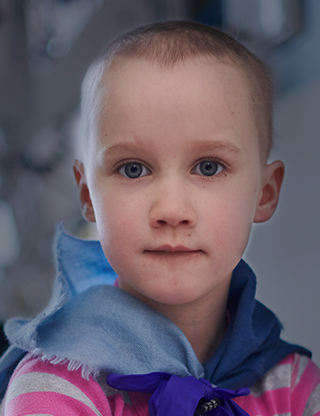The Pulse on Vaccines
August 24, 2021
Pediatric infectious diseases expert Dr. Manish Sadarangani shares his latest studies on COVID-19, vaccines, and the impact of his findings for children in BC and beyond.
See below to watch a recording of the Pulse.
Q&A Highlights with Dr. Sadarangani
- When will a vaccine be available to children under 12? (28:20 in presentation)
- How long will the vaccine be effective for? Will children (and adults) need a booster? (31:08 in presentation)
- For children who have severe allergies, it safe for them to receive the vaccine? How about children who are anaphylactic? (33:26 in presentation)
- How has the perceived confidence in the Pfizer and Moderna vaccines influenced the development of vaccines for children? (34:45 in presentation)
- How can parents and caregivers address their children’s questions and concerns – in age-appropriate ways – around getting the vaccine, or being in an environment where others may not be vaccinated? (36:48 in presentation)
- It seemed like children were less vulnerable, compared to adults, to the coronavirus last year. How has this changed with the Delta variant? (39:33 in presentation)
- Why would children need both the COVID vaccine and also the flu vaccine? (42:30 in presentation)
- Why is it important to ensure that children are kept up-to-date on their routine immunizations? (44:34 in presentation)
Other Questions
As there wasn’t time to answer all the thoughtful questions received during the event, we followed up with Dr. Manish Sadarangani, director of the Vaccine Evaluation Centre, to answer more of your questions related to vaccines, infectious diseases and research.
There is ongoing surveillance of vaccine effectiveness in all age groups, including children aged 12 and up. In clinical trials, no cases of COVID-19 have occurred in vaccinated adolescents between ages 12-17 who have received the Pfizer or Moderna vaccines after the initial follow-up.
No specific safety signals in this group have been identified.
No, these ingredients are not in any currently-used COVID vaccines. While they are used in other vaccines, they are only used in extremely small amounts that are not harmful.
See here for more information: https://immunizebc.ca/ingredients
There is ongoing monitoring and safety surveillance of children and adults across Canada, through multiple ways, including through a national initiative called IMPACT (Immunization Monitoring Program ACTive), to detect adverse events related to immunization and to monitor vaccine-preventable diseases.
While the long-term effects are not yet known, we do know that COVID-19 is a serious illness and that the vaccine is the best known protection.
See here for more information: https://immunizebc.ca/testing-approval-and-monitoring
There are very few contraindications (symptoms or conditions that makes a particular treatment inadvisable) to COVID-19 vaccines. If someone has had an allergic reaction in the past to one of the vaccine ingredients, they should consult with their family physician and/or a specialist allergist. The vaccines are safe for people with allergies to other ingredients that are not in COVID vaccines.
See 33:26 in the presentation for more information on children with allergies and the COVID-19 vaccine.
Antibodies would only pass from the birth mother to the infant in significant amounts via the placenta, if the mother is infected or vaccinated during pregnancy or shortly before pregnancy. We would expect these antibodies to provide some protection to the infant. Antibodies transferred across the placenta usually remain for up to 3-6 months. BC Children’s is involved in ongoing research in this area.
While most antibodies through breast milk will not reach significant levels in the infant’s blood, breastfeeding in general – regardless of the COVID-19 antibodies it may contain – does provide some protection against respiratory and gastrointestinal infections.
Yes, although we believe that they are less likely to transmit it compared to those who are unvaccinated – this may vary depending on the COVID-19 variant. This is why the current public health measures apply to everyone, regardless of their vaccination status.
See here for some measures to minimize transmission in child care settings: http://www.bccdc.ca/Health-Info-Site/Documents/COVID_public_guidance/Guidance_Child_Care.pdf
Yes, protection against the Delta variant after two doses of the COVID-19 vaccine is similar to protection against other variants. Some studies have reported slightly reduced effectiveness against the Delta variant after only one dose
The vaccine is currently available for any child who is born in 2009 or later.
Oral vaccines are currently in development for both children and adults.
There are currently multiple studies taking place around the world to better understand this development. Long term problems after COVID-19 in children appear to be less common than in adults and different in nature.
Possibly, although it is not going to be the same for everyone. After vaccination or infection, a person would be exposed to the viral spike protein. Therefore, if this is the trigger for an inflammatory/immune response then theoretically the same could occur as a result of vaccination or infection. However, with infection there would also be exposure to the other viral proteins. And with vaccination there are the other vaccine ingredients.
To participate in research studies at BC Children’s Hospital Research Institute, please visit https://www.bcchr.ca/vec/participate
For questions related to safety in schools, please see the latest public health safety measures here: https://www2.gov.bc.ca/gov/content/education-training/k-12/covid-19-safe-schools
Please note, if your question was specific to your child or family, please reach out to your medical team or family physician directly.
Resources
- ImmunizeBC
- BC Centre for Disease Control – Vaccine Safety
- Government of Canada – Recommendations on the use of COVID-19 vaccines
- To participate in research studies at BC Children’s Hospital Research Institute
Kids never stop fighting. What if you never stop giving?
When you give a monthly gift, you’re choosing to stand alongside us to show every kid who needs our help that you’ll never stop caring.
Give monthly

